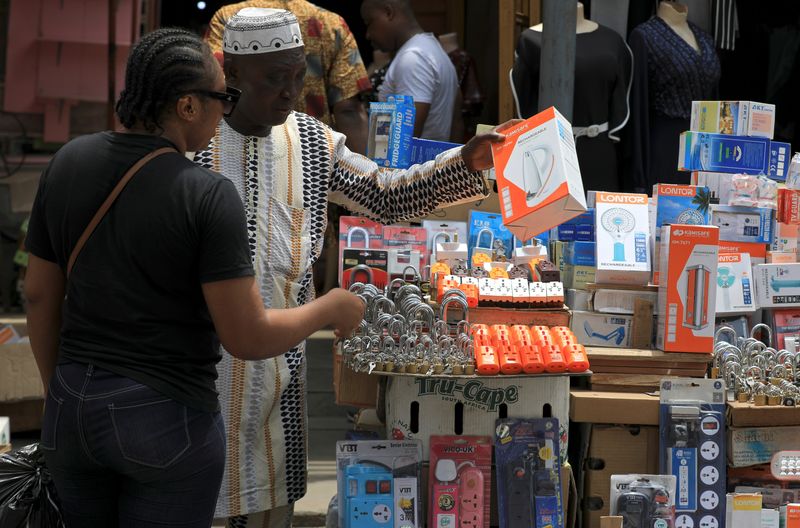By Alexis Akwagyiram and Chijioke Ohuocha
LAGOS/ABUJA (Reuters) - As women in hairnets and anti-coronavirus masks sort through folded nappies coming off a conveyor belt, the head of the Nigerian firm they work for wonders how much longer he can afford to keep them in employment.
Around 80% of the materials that go into Lagos-based diaper and sanitary towel manufacturer Wemy's products are imported. To buy them, Paul Odunaiya needs dollars, which he can no longer find.
"We're pleading with our suppliers to wait a bit longer so that we can source dollars and pay them," Odunaiya told Reuters.
With the price of oil, Nigeria's main export, depressed and foreign exchange reserves dwindling, its central bank is hanging on to its dollars to support the local naira - leaving a dwindling supply of hard currency to buy the imports that are the bedrock of Africa's largest economy.
Muda Yusuf, director general of the Lagos Chamber of Commerce, said that, like Odunaiya, the dollar shortage is hitting most of its 2,000 members hard.
"If the situation persists it will lead to lay-offs," he said. "If you are not producing, there will be a shortage of goods in the market, prices will go up."
Inflation has risen for 10 straight months, hitting a two-year high of 12.56% in June, piling on greater economic hardship for a population of whom 40% already live below the official poverty line of 137,430 naira ($382) per year.
Added to that, there have been two devaluations of the naira's official rate this year.
With the oil market depressed by a producer price war and the pandemic-induced global recession, central bank reserves have fallen 20% in the past year to $36.1 billion, around five months of import cover.
The bank initially sought to stem the decline by suspending dollar auctions in March and continues to severely ration their supply.
"It's been excruciating," said Fred Ameobi, executive director of Coscharis Group, a conglomerate whose businesses include automobile assembly.
The government says the economy could shrink by up to 8.9% in 2020, while many of the local banks that Nigerian companies rely on have seen their dollar credit lines halted by international lenders who fear they won't be paid back.
Many firms have resorted to the black market, where the naira trades at around 20% below the official rate, making dollar purchases even more expensive.

For now Odunaiya, whose firm had year to March turnover of 2.5 billion naira, sees only hard times ahead. "It's going to be a tough year ... Some businesses will die."